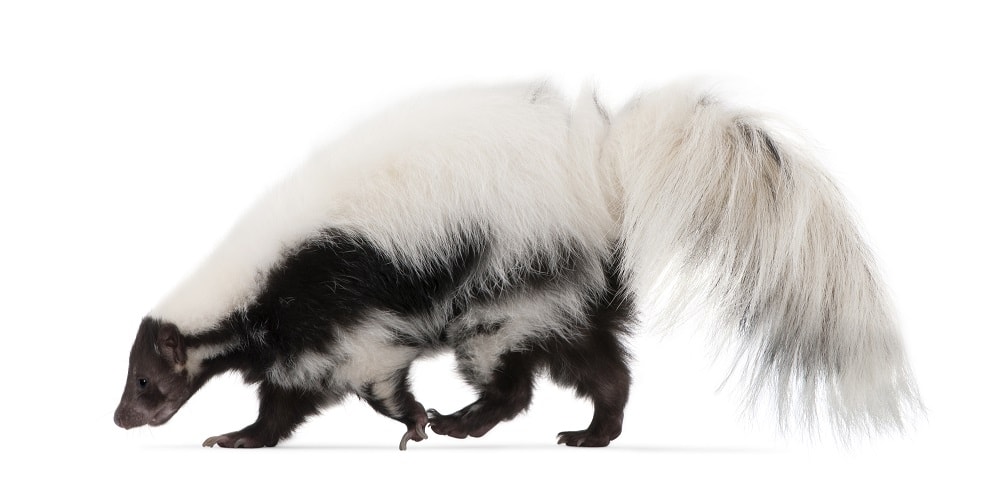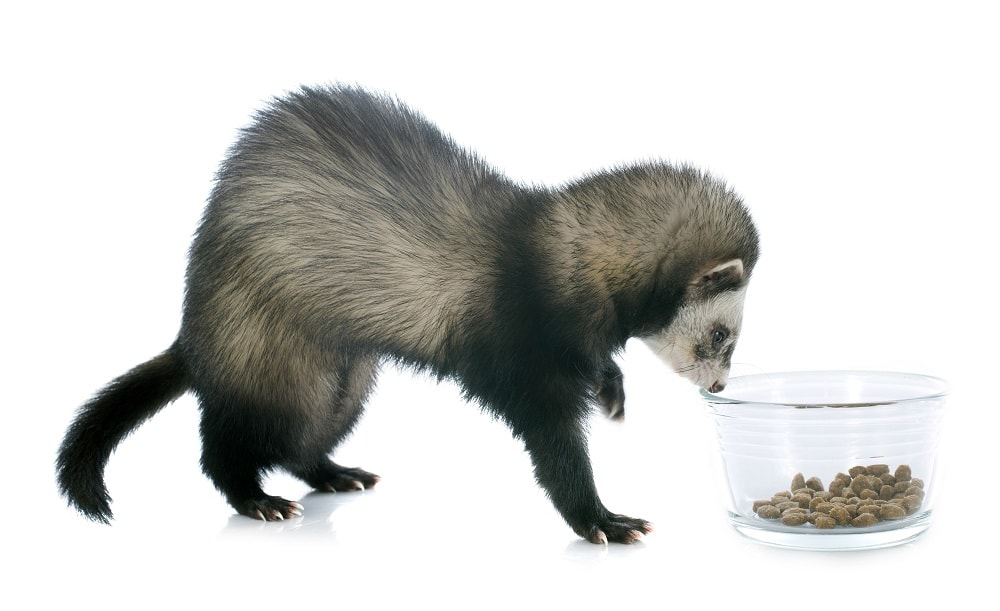Skunks are known for their appearance and the noxious odour they emit as a defensive mechanism. They are often misunderstood creatures; understanding their behaviour might help you avoid them.
Skunk Types
There are four kinds of skunks: striped, hog-nosed, hooded, and spotted. Their most common and prominent features are a black and white body and long/furry tails. They can grow from 8 – 19 inches long and weigh between 7 -14 pounds. Their furry tail measures from 5 – 15 inches in length. They can grow around the size of domestic cats or puppies. They have large feet and well-developed claws they use to dig holes when searching for food.
Diet
Skunks’ choice of food is flexible and often shifts with the seasons. They are omnivorous and will consume birds, rodents, fruits, pet food, and household garbage. Skunks will eat most anything they can find or catch. They are a natural form of pest control, eating many of the mice and insects that people wouldn’t like as houseguests.
Behaviour
Skunks are not aggressive in nature. Like most animals, they defend themselves when they feel threatened. If they become frightened, they spray a foul-smelling musk on the perceived attacker. The spray can sting the eyes. The harmless (but noxious) odour can last for days. They are nocturnal creatures who sleep during the day and hunt or forage for food at night.
Habitat
Most skunks are commonly found in North and South America. Other species of skunks live in Southeast Asia. They can survive in forests, deserts, and mountains. They make their homes in dens, hollow logs, and fallen trees. Skunks dig their own dens, but may also occupy deserted burrows of other animals. During winter, they gather leaves and grass inside the den as insulation. Sometimes skunks gather together to retain body heat. They also thrive in urban areas for the easy access to food and other resources.
Disease
Skunks can be helpful by serving as a predator to other pests. However, they may carry contagious diseases or viruses that are dangerous to humans and pets. The skunk is one of the four wild animals (including bat, raccoon, and fox) considered to be primary carriers of the rabies virus. Rabies can be fatal if not treated immediately. Do not directly approach or catch skunks on your own.
If your dog got sprayed by a skunk in Toronto or the Greater Toronto Area, contact Liddle Rascals Wildlife Control. We offer skunk removal services that are safe and humane for both the residents and the animals in question. Our services include a thorough home inspection and advice on repairs, remedies, and prevention.
Expert Skunk and Wildlife Removal in the Greater Toronto Area
We are available 24 hours a day, seven days a week.
Call us at (416) 356-5886 or contact us online.






Leave a Reply
You must be logged in to post a comment.